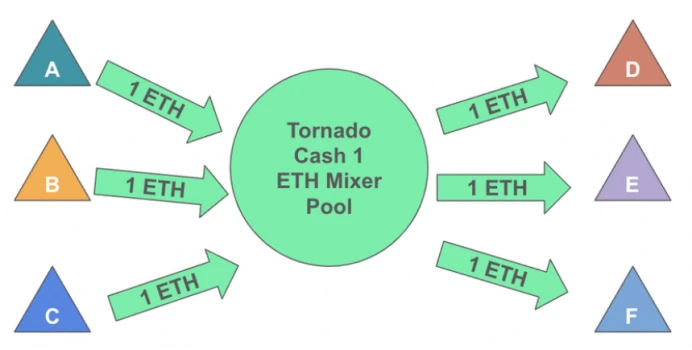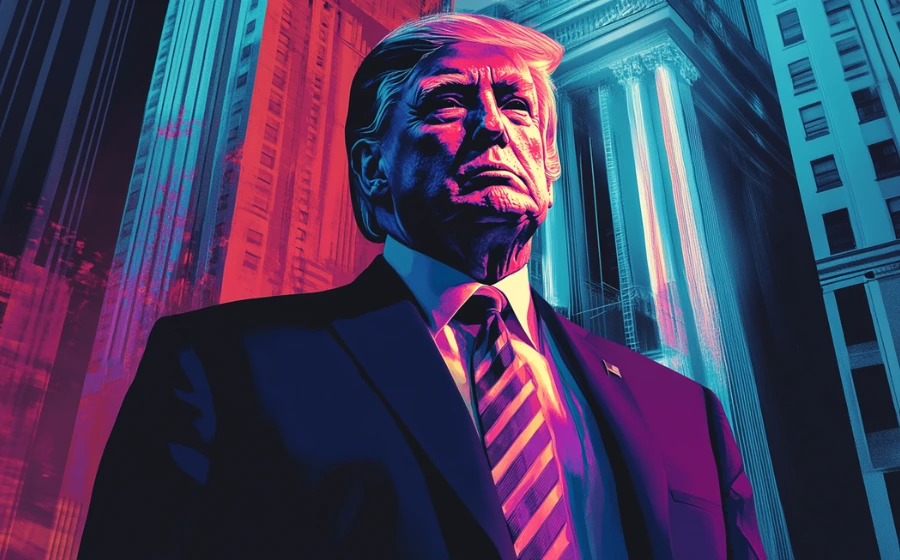
TABLE OF CONTENTS

The Tornado Cash case, centered on the legality of privacy-focused technology and regulatory sanctions, has sparked significant debate. The court’s recent decision to overturn the sanctions clarified government power limits. This case represents a critical intersection of privacy, technological innovation, and legal frameworks, with far-reaching implications for the cryptocurrency industry’s future.
On November 26, 2024, the Fifth Circuit Court of Appeals issued a ruling in favor of Tornado Cash. The court determined that Tornado Cash’s smart contracts do not constitute “property of a foreign national or entity” and are therefore not subject to the International Emergency Economic Powers Act (IEEPA).
The court noted that while smart contracts could be misused by criminals, this does not inherently render the technology illegal. It emphasized that legislation on such matters should be enacted by Congress rather than determined through expansive interpretations by administrative agencies.
Following this favorable news, TORN experienced a significant surge. As of this writing, its 24-hour trading volume has skyrocketed by 15,496%, with prices rising by 440%.

(Source:Coinmarketcap)
TORNADO CASH: THE STRUGGLE BETWEEN PRIVACY AND REGULATION
As blockchain technology develops rapidly, the conflict between privacy protection and regulation becomes more and more apparent. This is especially true in the cryptocurrency space, where the growing demand for anonymous transactions and increasing regulatory interventions make the balance between privacy and compliance increasingly challenging. Tornado Cash, a cryptocurrency mixer that provides privacy protection, has gained significant popularity in the crypto world, but it has also become a target of regulatory crackdowns because it has been used by criminals for money laundering. In 2022, the U.S. Department of the Treasury’s Office of Foreign Assets Control (OFAC) imposed sanctions on Tornado Cash.
Tornado Cash: The Battle Between Privacy and Transparency
Tornado Cash is built on the Ethereum blockchain, utilizing smart contract technology to provide users with anonymous transactions. One of the key characteristics of cryptocurrencies is the transparency of their transactions, meaning anyone can trace the flow of funds on the blockchain. While this transparency gives the system decentralized characteristics, it also makes users’ transaction histories easy to track by external parties, potentially exposing their personal information and the sources of their funds. This has made privacy a critical component of the crypto market.
Tornado Cash emerged to meet this privacy need. By mixing users’ transactions, Tornado Cash makes it difficult to trace the source and destination of funds, thus effectively protecting user privacy. However, this technology also creates a deep conflict between privacy and regulation. On one hand, it satisfies the privacy needs of many users, especially in sensitive or cross-border transactions; on the other hand, it has been used by hackers and criminals for money laundering and illicit fund flows.
REGULATORY INTERVENTION: OFAC SANCTIONS AND LEGAL CONTROVERSIES
In 2022, the U.S. Department of the Treasury’s OFAC imposed sanctions on Tornado Cash, prohibiting U.S. citizens from conducting any form of transaction with the platform. OFAC stated that since its inception in 2019, Tornado Cash had become a tool for money laundering and other illicit activities, with about $7 billion in funds linked to criminal actions.
The U.S. government argued that the existence of cryptocurrency mixers facilitated black market transactions and the flow of terrorist financing, and thus must be regulated and sanctioned.

However, these sanctions immediately sparked widespread legal controversy. Critics argued that Tornado Cash’s core technology—smart contracts—is open-source software and not an entity or individual, so it should not be considered “property” subject to sanctions. Additionally, Tornado Cash’s smart contracts are immutable, meaning once deployed, their code cannot be changed.
This makes it fundamentally different from traditional financial institutions. Many argued that the government’s intervention in such emerging technologies through broad interpretations of existing laws created legal uncertainty and posed potential threats to open-source projects, technological innovation, and privacy protection.
Court Ruling: Defining the Boundaries of Government Power
On November 26, 2024, the Fifth Circuit Court of Appeals made a favorable ruling for Tornado Cash. The court found that Tornado Cash’s smart contracts did not constitute “property” of “foreign nationals or entities” and, therefore, were not subject to the jurisdiction of the International Emergency Economic Powers Act (IEEPA). The court pointed out that while smart contracts might be misused by criminals, this did not mean the technology itself should be deemed illegal. The court emphasized that legislation should be enacted by Congress, not by administrative agencies through expansive interpretations to determine the legality of technology.
This ruling is of landmark significance. Not only did it overturn OFAC’s sanctions on Tornado Cash, but it also clearly defined the boundaries of government power in addressing emerging technologies. The court stated that technology should not be entirely rejected just because it is misused, and the government’s role is to combat illegal activities through a proper legal framework rather than using administrative measures to control the technology as a whole. This decision provides important judicial protection for the cryptocurrency industry, especially in terms of coordinating technology and law.
PRIVACY AND REGULATION: THE FUTURE BALANCE OF CRYPTOCURRENCIES
While the court’s ruling is a victory for Tornado Cash, the case is not yet fully resolved. Tornado Cash developers and users still face legal challenges. For example, Tornado Cash developer Alexey Pertsev has been charged with money laundering and faces up to five years in prison. This indicates that even if the smart contract technology itself is not considered “property,” its developers may still face legal consequences for the way the technology is used.

This also highlights the complex struggle between privacy and regulation. The privacy protections in cryptocurrency serve to meet user needs, but when this technology is used for criminal activities, regulatory intervention becomes inevitable. In this context, how to balance privacy protection with national security, financial stability, and other public interests remains a pressing issue.
Tornado Cash’s case offers deep insights into the future of cryptocurrency regulation. First, the importance of privacy protection in the cryptocurrency ecosystem has become more evident, and technological innovation should not be subject to blanket rejection due to misuse. Second, governments should regulate technology through legislation, rather than administrative orders, ensuring that regulatory measures are legal and compliant. Finally, regulatory frameworks should more carefully consider the specific characteristics of different technologies and develop laws that adapt to the evolution of emerging technologies, rather than simply relying on existing legal systems.
CONCLUSION
The Tornado Cash case is not only a reflection of the cryptocurrency industry but also illustrates the profound conflict between new technologies and traditional legal systems. In this process, privacy, regulation, technological innovation, and legal authority are intertwined, making it a key issue that the cryptocurrency industry must address in the future. Tornado Cash’s victory brings hope to the crypto industry, but the struggle between privacy and regulation is far from over. The future of the cryptocurrency industry will continue to find a balance between privacy protection and compliance regulation, and this balance point may ultimately be the result of the collaboration between technology, law, and societal needs.
CoinRank x Bitget – Sign up & Trade to get $20!





















